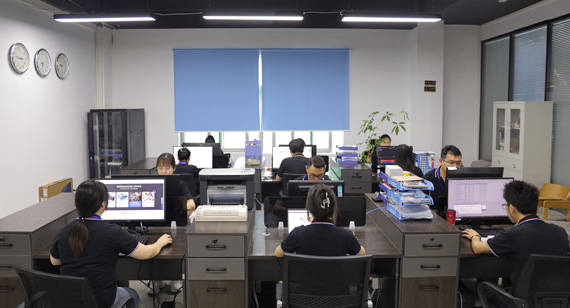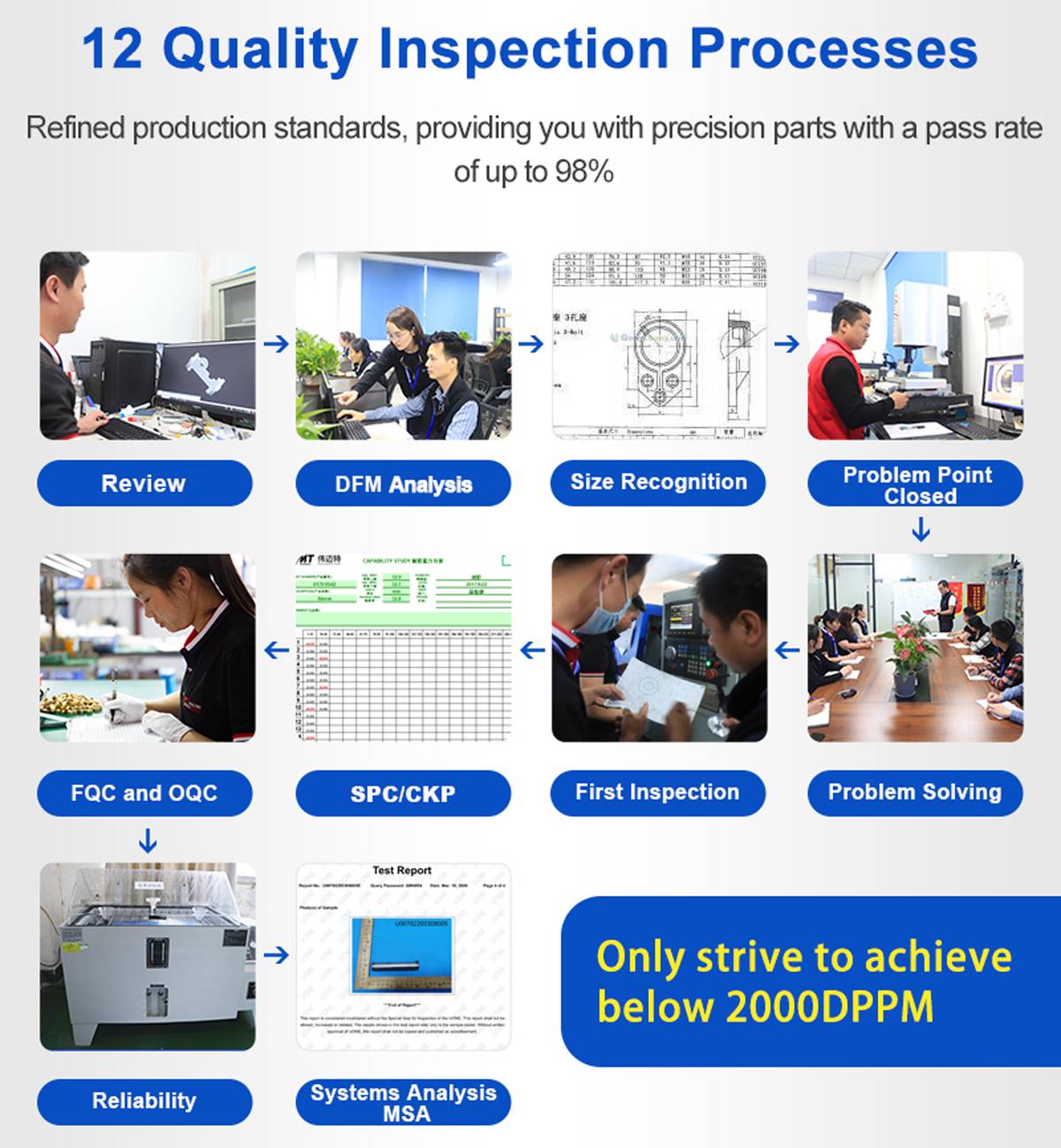15 years one-stop China custom CNC machining parts factory

Hey there I’m VMT Sam!
With 25 years of CNC machining experience we are committed to helping clients overcome 10000 complex part-processing challenges all to contribute to a better life through intelligent manufacturing. Contact us now
 120 |
Published by VMT at Mar 06 2024
120 |
Published by VMT at Mar 06 2024
Optimizing Lead Time for Custom CNC Machined Parts
In the realm of CNC machined parts manufacturing, optimizing lead time is a crucial step for enhancing customer satisfaction and strengthening enterprise competitiveness. CNC machining factories need to consider various factors and implement effective measures to ensure the stability and accuracy of lead times. This article explores multiple aspects of optimizing lead time for custom CNC machined parts.

I. Clearly Define Customer Requirements and Order Assessment
Initially, CNC machining factories should engage in thorough communication with customers to understand specific order requirements and delivery timelines. Upon receiving an order, the factory should conduct a comprehensive assessment, considering factors such as the technical complexity of the parts, material requirements, and production processes. This evaluation forms the basis for accurately determining production time and resource needs, laying the groundwork for lead time optimization.

II. Optimize Production Planning and Scheduling
Given the unique characteristics of custom CNC machined parts, CNC machining factories should establish detailed production plans and schedules. By strategically arranging production equipment, skilled personnel, and process flows, factories can ensure seamless coordination between various production stages, reducing production waiting times and delays. Additionally, advanced production management software can be employed to monitor production progress in real-time and dynamically adjust production plans and schedules.
III. Improve Equipment Utilization and Efficiency
Equipment utilization and efficiency directly impact the lead time for custom CNC machined parts. CNC machining factories should intensify equipment maintenance efforts to ensure equipment is in optimal working condition. Introducing advanced CNC equipment and technological processes can enhance machining precision and efficiency, consequently shortening production cycles. Simultaneously, optimizing equipment configuration and layout can enhance collaborative operations between different pieces of equipment.
IV. Strengthen Quality Control and Inspection
Quality control is a pivotal aspect of ensuring the stability of custom CNC machined parts' lead times. CNC machining factories should establish a robust quality management system, implementing rigorous quality control throughout the production process. By strengthening quality inspection and monitoring, issues can be identified and addressed promptly, minimizing production delays and lead time extensions due to quality issues.

V. Enhance Supply Chain Management and Collaboration
Effective supply chain management is equally critical for optimizing lead times for custom CNC machined parts. CNC machining factories should establish stable cooperative relationships with suppliers to ensure the stability and timeliness of raw material and component supplies. Strengthening communication and collaboration with suppliers facilitates information sharing and coordinated operations, enhancing the responsiveness and flexibility of the supply chain.
VI. Introduce Smart Manufacturing and Automation Technologies
As smart manufacturing and automation technologies advance, CNC machining factories can incorporate these innovations to optimize lead times for custom CNC machined parts. For instance, introducing automated production lines and robotics technology can automate and intellectualize production processes, improving production efficiency and accuracy. Additionally, leveraging the Internet of Things (IoT) and data analytics tools for real-time monitoring and analysis enhances the visibility and control over the production process.
VII. Continuous Improvement and Training
CNC machining factories should continually address issues and bottlenecks in the production process through continuous improvement and innovation. Concurrently, investing in the training and education of technical personnel enhances their professional qualifications and skill levels, providing robust talent support for lead time optimization.
In conclusion, optimizing lead time for custom CNC machined parts requires CNC machining factories to address various aspects, including defining customer requirements, optimizing production planning, improving equipment utilization, strengthening quality control, enhancing supply chain management, introducing smart manufacturing and automation technologies, and embracing continuous improvement and training. Through the effective implementation of these measures, CNC machining factories can significantly enhance the stability and accuracy of lead times for custom CNC machined parts, meeting customer demands, and bolstering enterprise competitiveness.
Ready To Start Your Next Project?
Get Instant Quote

Request a Free Quote
Send us a message if you have any questions or request a quote. We will get back to you ASAP!